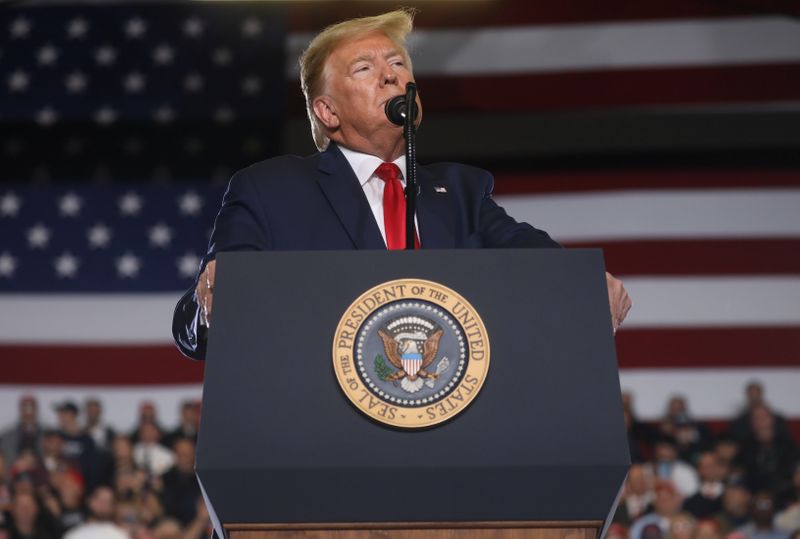(Reuters) - U.S. senators on Thursday spent the day posing questions to the Democratic lawmakers prosecuting the impeachment case against President Donald Trump and the lawyers defending him.
Here is what to look out for next:
THURSDAY
* The 100 senators are expected to finish submitting their questions late in the evening when their 16 hours of allotted time are either exhausted or no more questions remain.
* Senators have not been asking questions directly. They submit them to U.S. Chief Justice John Roberts, who is presiding over the trial. Roberts then reads the questions aloud.
* Questions can be directed at the prosecution or the defense, but not at other senators.
BEYOND THE QUESTION PERIOD
* If Friday's trial session begins at 1 p.m. (1800 GMT), as expected, impeachment managers and Trump's lawyers will have four hours, equally divided, to present arguments.
* The Senate will then debate whether to subpoena witnesses and documents, followed by a vote, which could occur on Friday. In the event of a tie vote, the motion fails, unless Roberts casts a vote to break the tie.
* If the Senate votes to hear more evidence, it would then hold subsequent votes on which witnesses senators would like to call and what documents they want to read.
* If the Senate subpoenas witnesses, they would be deposed privately before the Senate decides on public testimony. On Thursday, Representative Adam Schiff, the head Democratic impeachment manager, proposed a one-week limit for conducting depositions.
* If no witnesses or additional documents are subpoenaed, senators could consider other motions or proceed to vote on each of the two articles of impeachment, which charge Trump with abuse of power and obstruction of Congress.

* If the Senate does not decide to issue subpoenas, the trial likely would conclude within days, if not sooner. If it does issue subpoenas, the proceedings are almost certain to still be under way when Trump delivers the annual State of the Union address to Congress on Tuesday.